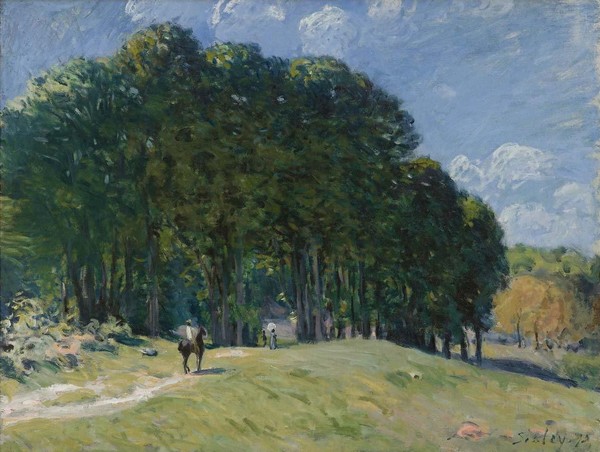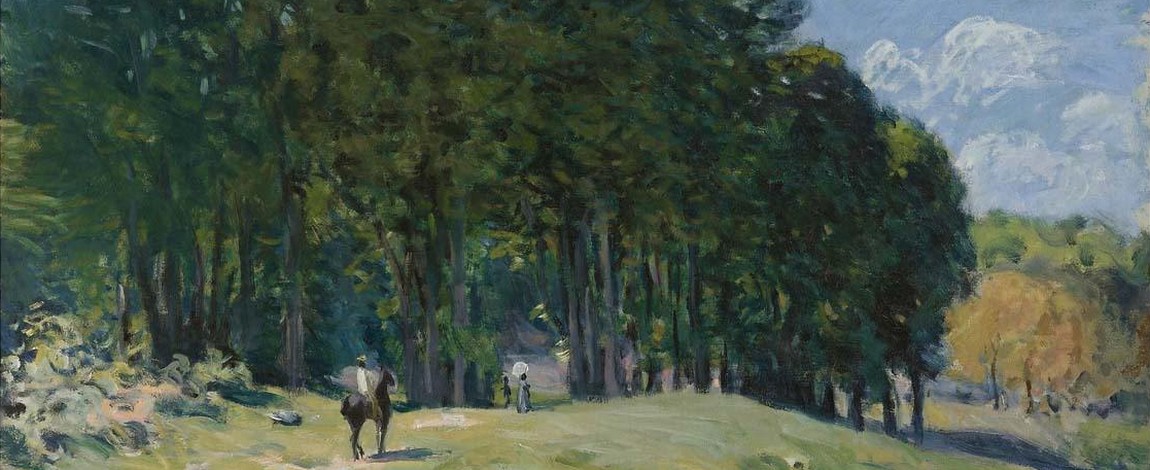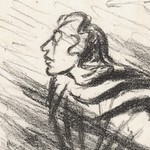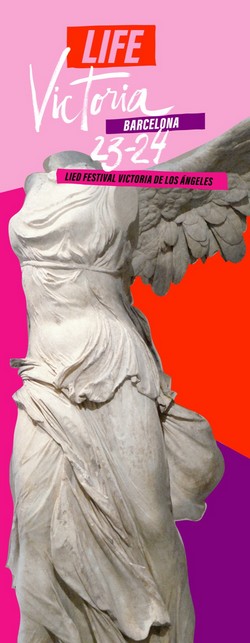
In April 1770, then twenty-one years old, Johann Wolfgang Goethe arrived in Strasbourg to study law at the University. There he met someone who had a decisive influence on his training and poetry: Johann Gottfried Herder, only five years older than him. He introduced him to writers such as Homer and Shakespeare; he made him realize the importance of folk songs, entrusting him with passion, and he initiated him into the incipient literary movement Sturm und Drang (Storm and Stress). Several years later, shortly after entering the service of Archduke Charles Augustus in the Weimar Court, Goethe helped Herder to hold a position, so the relationship continued for a long time.
Another person had a significant impact on Goethe's life at that time. In fact, it's part of his personal life, but I'm telling you because it's related to the song we're about to hear. This is Friederike Brion, who was her first true love. She was 19 years old and was the daughter of the vicar of Sessenheim, a town about 40 km from Strasbourg. The Brion family welcomed the young man and their relationship became closer. Everyone assumed that the couple would be engaged and eventually marry, but in August 1771, the young man visited Friederike and then returned to his home in Frankfurt after completing his stay in Strasbourg. The relationship was broken up by a letter to Friederike.
The literary fruits of that love story were a handful of poems known as Sessenheimer Lieder. Among them is Heidenröslein, probably the poem by Goethe which better reflects the long talks with Herder, with his consciously popular air. And also the one that inspired this week's Lied, Willkommen und Abschied. Not in that 1771 version, but in the 1789 revised version, which Schubert set to music in December 1822.
A while ago I spoke, referring to another Schubert lied, Lob der Tränen, about how these songs that we love so much are also subject to the trends: they are often heard for a while and then disappear from the repertoire. Or, on the other hand, one day you realize that you've been listening to a song a lot lately. That is precisely what happened to me with Willkommen und Abschied [Welcome and Farewell]: in recent years, either on the program or as an encore, I have observed that it has been frequently played. And no wonder because it's a catchy song.
Let's look at the poem briefly: in the first two stanzas, the poetic voice tells us about his horse-drawn journey (Goethe was a consummate rider) to meet the beloved. It is turning dark, the moon is barely brightening, there is fog, and the forest is filled with threatening shadows and murmurs. But these small things cannot upset the happy lover. The third stanza is the welcome, the encounter with the girl; the farewell, accompanied by tears, arrives the next day, in the fourth stanza. You'll notice there's a word used in every stanza: Herz, heart. The heart beats fast in the first one, passionate in the second, attached to a young woman in the third, and sad in the fourth stanza.
Schubert uses the reference to the horse to make the song gallop. The singer and pianist, in a song that's a real challenge, must keep the reins in their hands for the first two verses to avoid a fright. In the third, the horseman dismounts; while the accompaniment, in pianissimo, continues to beat, the melody is sweetened without losing urgency, until that moment of pause when the poetic voice invokes the gods, grateful for his luck. And the song ends with a fusion of sorrow and joy, with this triumphant tone… there must be few songs in the repertoire in which the euphoria is heard with such vividness.
Sometimes you ask me why I don't share more videos instead of just audio. First, there are very few. Second, the videos are ephemeral, and I know that they will eventually disappear from YouTube. And until I know, there will be a broken link where there should be music, and when I know, I will have to edit the article to replace the video with an audio recording.
But a few months ago, this video of Willkommen und Abschied was released with two performers I like a lot, Samuel Hasselhorn and Ammiel Bushakevitz, and I think it's worth taking the risk. Here it is. I hope that you enjoy their interpretation as much as I do.
Es schlug mein Herz, geschwind zu Pferde!
Es war getan fast eh’ gedacht.
Der Abend wiegte schon die Erde,
Und an den Bergen hing die Nacht;
Schon stand im Nebelkleid die Eiche,
Ein aufgetürmter Riese, da,
Wo Finsterniss aus dem Gesträuche
Mit hundert schwarzen Augen sah.
Der Mond von einem Wolkenhügel
Sah kläglich aus dem Duft hervor,
Die Winde schwangen leise Flügel,
Umsausten schauerlich mein Ohr;
Die Nacht schuf tausend Ungeheuer,
Doch frisch und fröhlich war mein Mut:
In meinen Adern welches Feuer!
In meinem Herzen welche Glut!
Dich sah ich, und die milde Freude
Floss von dem süssen Blick auf mich;
Ganz war mein Herz an deiner Seite
Und jeder Atemzug für dich.
Ein rosenfarbnes Frühlingswetter
Umgab das liebliche Gesicht,
Und Zärtlichkeit für mich – Ihr Götter!
Ich hofft’ es, ich verdient’ es nicht!
Doch ach, schon mit der Morgensonne
Verengt der Abschied mir das Herz:
In deinen Küssen welche Wonne!
In deinem Auge welcher Schmerz!
Ich ging, du standst und sahst zur Erden,
Und sahst mir nach mit nassem Blick:
Und doch, welch Glück, geliebt zu werden!
Und lieben, Götter, welch ein Glück!
My heart pounded, quick! to the horse!
It was done before I could think;
evening was already cradling the earth
and night hung upon the mountains:
already the oak stood clothed in mist,
a towering giant there,
where darkness from the bushes
peered with a hundred dark eyes!
The moon from a hill of cloud
looked pitifully down through the haze,
the wind stirred with gentle wings
murmuring eerily into my ear;
night created a thousand horrors;
but fresh and cheery was my mood:
in my veins, what fire!
in my heart, what passion!
You I saw and gentle joy
flowed from your sweet gaze to mine,
my heart was entirely at your side,
and every breath was for you.
Rose-colored spring
surrounded your lovely face,
and tenderness for me - oh you Gods!
I had hoped for this, but I do not deserve it!
But alas, already with the morning sun,
parting strangles my heart:
in your kisses, what bliss!
in your eyes, what pain!
I left, and you stood and looked down at the ground,
and then gazed after me with wet eyes:
and yet, what happiness to be loved!
And to love, Gods, what good fortune!
(translation by Emily Ezust)


















Comments powered by CComment